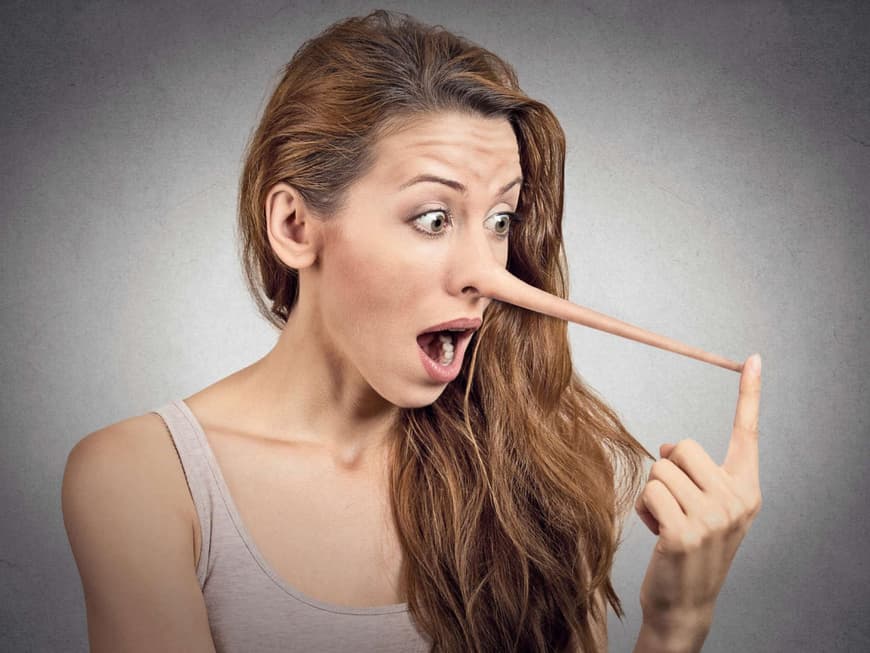
We lie up to 200 times a day - or our conversation partner does. Those who recognize liars in everyday life have a clear advantage. Body language expert Monika Matschnig reveals the signs. "It's pretty easy to tell a lie. Controlling your body from head to toe is much more difficult," says the psychologist, explaining how to spot a fraud. Pay attention to inconsistent behavior, for example, when the statement and body language don't match: If the non-verbal reaction is delayed, the answer was probably a lie.
If, for example, the joyful facial expression about a gift only follows shortly after the expressed joy, it was probably not genuine. Similarly, an exaggerated, overly emotional reaction is often more likely to be an act. However, everyone has their own body language and individual quirks: "One signal alone is not enough to tell the whole story," says the expert. Only when several signs apply can a liar be clearly convicted. You can recognize a liar by these 6 signs!
5 signs by which you can recognize a liar
Sign 1: Clearing your throat
Clearing your throat delays an answer and gives you time to think. If it happens before a statement, an untruth is more likely to follow. Clearing your throat after an answer is okay. The signal is clearly visible in men because of their Adam's apple. "If it bounces, the answer is still in progress," analyzes the psychologist.
Sign 2: Dilated pupils
Our pupils can also dilate regardless of the lighting conditions, e.g. when we are happy, but also when we are scared, excited or surprised. Enlarged pupils can therefore be a sign of a lie under certain circumstances. However, if you are sitting at the bar in the evening and the other person has dilated pupils, this is probably not a sign of a lie, but rather a sign of interest. "So you see, we always have to assess signals in context," the expert reminds us.
Sign 3: Lips pressed together
Lips reveal a lot about the other person's true emotional state. Relaxed lips are a sign of well-being. But anyone who purses their lips for a long time is checking a statement and postponing an answer out of discomfort. Twitching indicates the same thing. Lips pressed tightly together don't actually want to say anything, a lie could follow. Chewing on the lip indicates uncertainty.
Sign 4: restless chin
"Some liars do a real workout with their chin," says Matschnig. They open their mouth, push their chin back and forth, up and down: small, subtle movements that stimulate the salivary glands and ensure that the mouth is moistened. It dries out when you lie, and more saliva makes it easier to speak.
Sign 5: High-pitched voice
The lie has its own sound: "In around 70 percent of cases, the pitch of the voice increases," says Matschnig. Garland sentences, where the voice goes up instead of down at the end of the sentence, are a sign of insecurity. And liars often catch their breath because their heart rate is increased and they breathe a little faster.
Sign 6: The face is flushed
Caught red-handed - now the only thing to do is deny it. It's a shame that the face and décolleté of young people and women in particular turn a telltale red when they lie. This vegetative reaction cannot be controlled and often occurs with untruths that are associated with shame.
Monika Matschnig is a qualified psychologist and has been Germany's leading expert on the subject for almost 20 years. In her book she explains how to recognize tricksters: "The body language of liars". approx. 18 euros. GU publishing house.
Source: Lea
